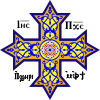Secundus of Asti
You can help expand this article with text translated from the corresponding article in Italian. (December 2008) Click [show] for important translation instructions.
|
Saint Secundus of Asti | |
|---|---|
 Image of Saint Secundus, from the Codice della Catena (Turin). | |
| Died | c. 119 AD |
| Venerated in | Roman Catholic Church |
| Feast | March 29 |
| Attributes | a sword, angel bringing him communion[1] |
| Patronage | Asti; Ventimiglia |
Secundus of Asti (Italian: Secondo di Asti) (died c. 119) is venerated as a martyr and saint. His feast day is generally celebrated on March 29. Until the 15th century it was celebrated at Asti on March 30, but it is now celebrated there on the first Tuesday in May. He was a historical figure who was beheaded at Asti under Hadrian. He is said to have been a patrician of Asti and a subaltern officer in the imperial army. It is known that a church was dedicated to him in the area as early as the 9th century.[2]

Legend
[edit]Later legends made Secundus a member of the Theban Legion. A more elaborate legend states that he was a young man of noble lineage who visited the jails of Asti. Secundus was a friend of Sapricius (Saprizio), prefect of the city. They traveled together to the city of Tortona, where Secundus met the city's first bishop, Marcian, who was later martyred under Hadrian. Secundus' meeting with Marcian influenced his decision to become a Christian; his meeting with Faustinus and Jovita further influenced his conversion. His friend Sapricius attempted to make him abjure his newfound faith. Secundus refused, and was tortured and decapitated.
Veneration
[edit]The codex called the Codice della Catena depicts Octavius, Adventor, Solutor, Maximus of Turin, John the Baptist, and Secundus of Asti.[3] Bernardo Strozzi painted his St Secundus and Angel around 1640.[4]
Notes
[edit]- ^ Husenbeth, Frederik Charles. Emblems of Saints: By which They are Distinguished in Works of Art, Longman, Green, Longman, and Roberts, 1860, p. 149
- ^ "San Secondo di Asti su santiebeati.it". Santiebeati.it. Retrieved 2018-03-17.
- ^ "Torino Medievale - Percorso - Porta Doranea". www.archeogat.it. Retrieved 2018-03-17.
- ^ "Bernardo Strozzi Online". www.artcyclopedia.com. Retrieved 2018-03-17.
External links
[edit]- Saints of March 29: Secundus of Asti
- San Secondo di Asti (in Italian)

